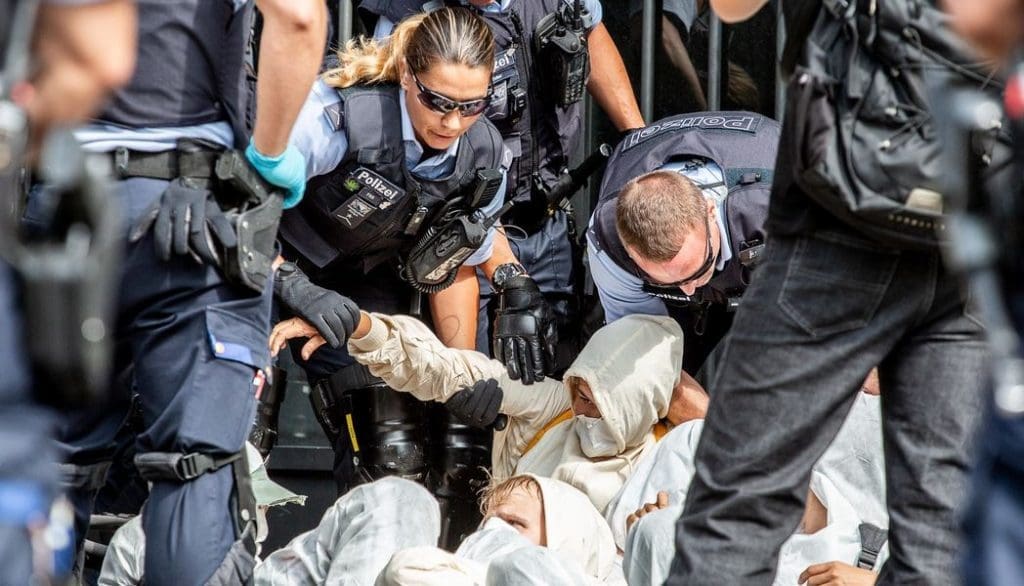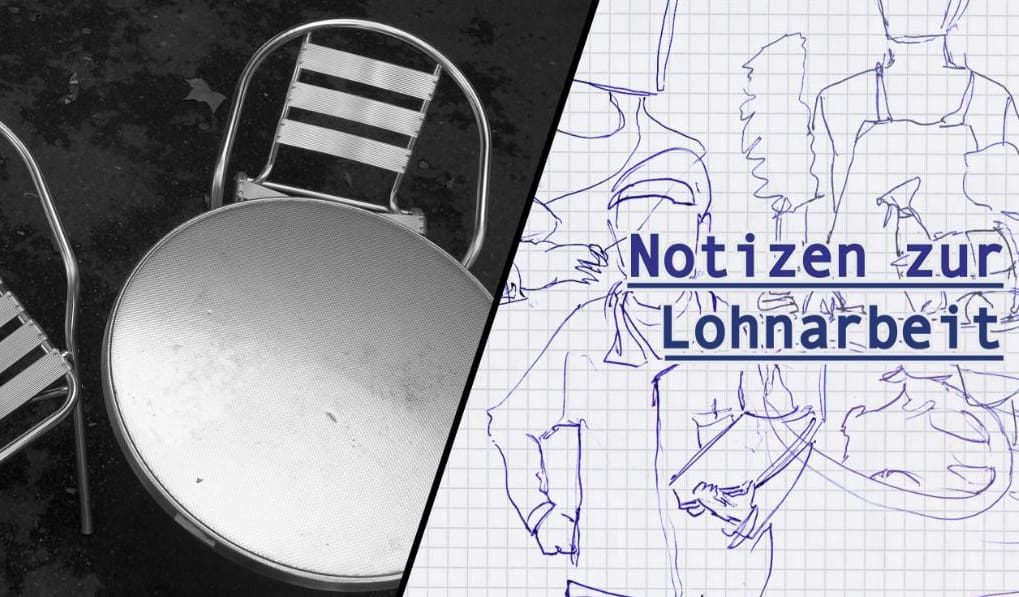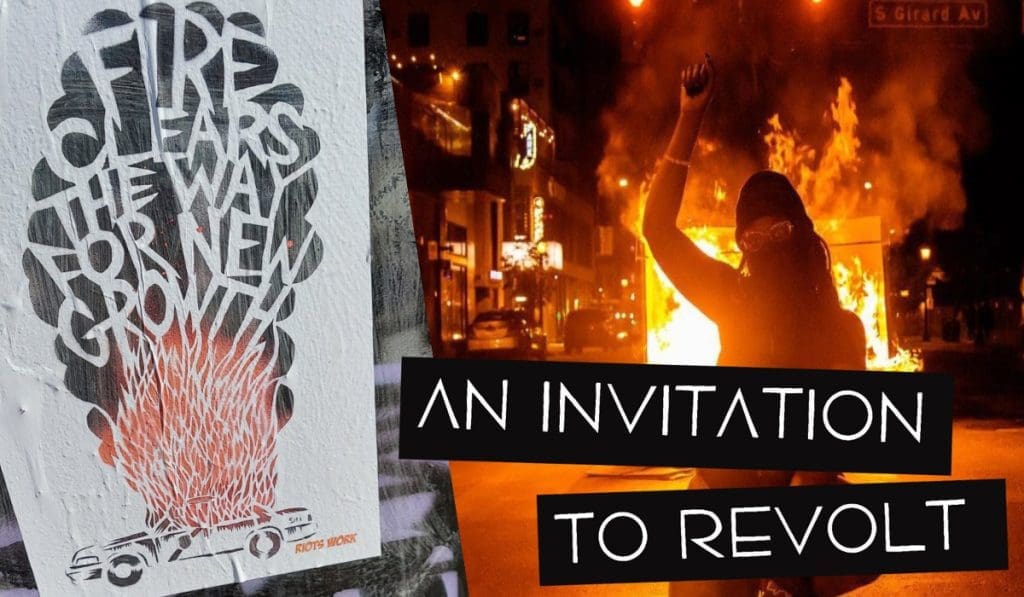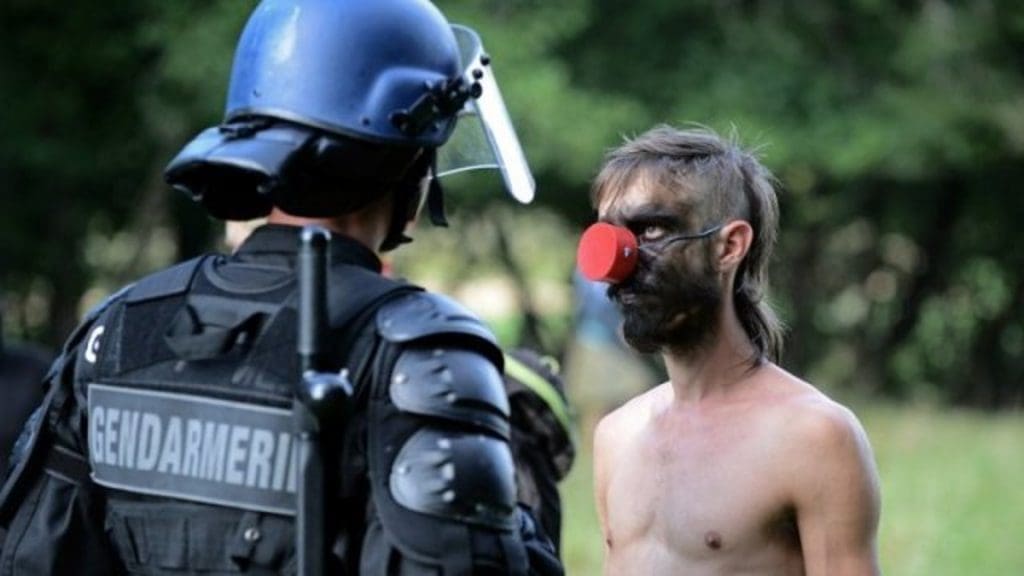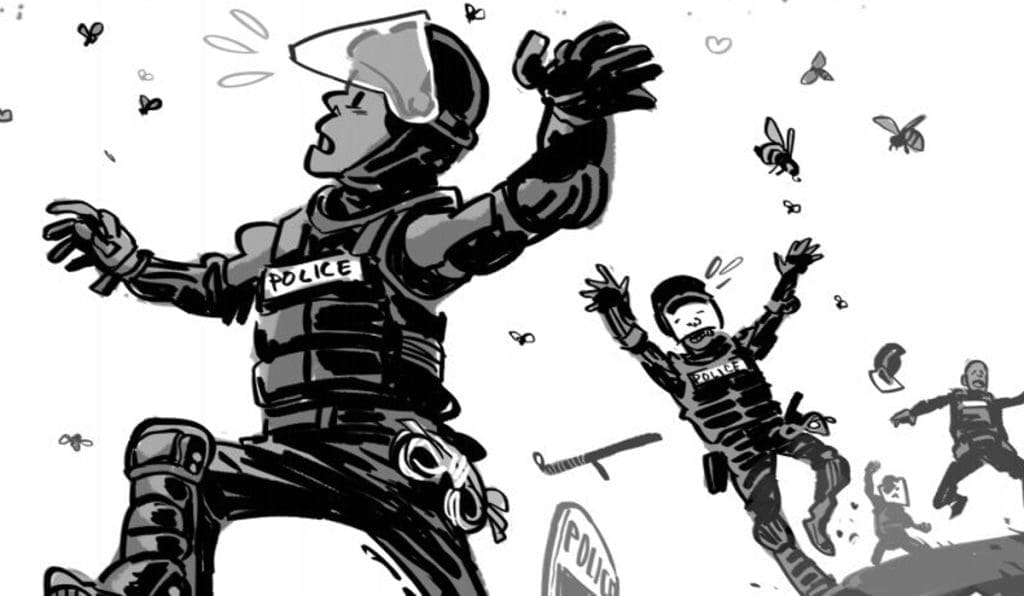AntiNote: Climate strike actions are escalating all over Europe. Aside from the well-publicized activities, in recent years, of movements like Ende Gelände targeting remote extraction sites in Germany or the ZAD resisting neoliberal development in rural France (not to mention those fighting clearcutting of primeval forests in Poland or mines in Romania and Greece), mass direct actions against banks and energy companies in urban centers are springing up in the Czech Republic, Austria, Switzerland, and elsewhere.
Last month in Vienna, police met a large and militant climate strike march with kettling and mass arrests. Of the ninety-four people violently arrested that day, ninety-two refused to give their names and had to be released—and the political fallout around the cops’ unbridled nastiness against young people is ongoing in Austria.
Earlier this month, something similar unfolded in Zurich and Basel, and ajour magazin spoke with one of the young activists now withstanding state repression for her activities in defense of the Earth. One gets the sense that the aging capitalist forces of death have their hackles up. Way up. May their gross overreactions lead to their ultimate undoing, and may the promise and the vision of the world’s vibrant youth be fulfilled.

Climate Emergency in the Heart of Finance
Zurich and Basel are clamping down hard on activists
by Frida Frey for ajour magazin (Switzerland)
23 July 2019 (original post in German)
On July 8, climate activists blocked the entrances to central branch locations of UBS and Credit Suisse in Switzerland. They were met with police brutality, escalated charges, and attempts by the media to divide them. But the movement will not be intimidated.
Scandal in the financial district! At seven in the morning on Monday, 8 July 2019, several dozen climate activists in white coveralls sat down in front of the entrances of Credit Suisse headquarters on Paradeplatz in Zurich. They had brought bicycles and planters, and chained themselves to them. At the same time, the main local branch of UBS was also blockaded in Basel. With these coordinated actions, the environmental justice group Collective Climate Justice was trying to draw attention to the fact that these two banking giants alone compel twice as much carbon emission with their investments than is produced by all of Switzerland.
In both cities, the state intervened forcefully. The blockades were cleared within a few hours, with all the activists rounded up and jailed for two days, and slapped with enormous fines. Non-Swiss activists were summarily banned from the country for up to three years. One person, who has declined to reveal their identity, is still in jail. But even this is not enough. Last week, Collective Climate Justice published a list summarizing police misconduct following the action—and it is long. The police denied detainees access to translators and legal representation, never declared grounds for arrest, refused medical attention, withheld food, conducted several illegal strip searches, hurled insults and threats, used inappropriate force, and curtailed press freedom.

“Careless and unprofessional”
Nineteen-year-old Chiara, a young woman with a soft voice who tosses off casual references to the Swiss government’s November 2018 climate report, was among those sitting in the entryway of the Credit Suisse headquarters in Zurich. Chiara has been involved in the Climate Strike movement from the start, but decided to take part in this action only at the last minute. When she speaks of her arrest, she repeatedly shakes her head in disbelief:
The best word to describe the police action is ‘absurd.’ At first when we were sitting on the ground all chained up in front of Credit Suisse, the officers there couldn’t have shown less interest in us. They didn’t even talk to us. But when they announced they were going to clear us out, robocops appeared and surrounded us. They were in full body armor—we were in our white coveralls. I was among the first to be hauled off. First they just pulled at me without even noticing that I was chained up. Then they were at a loss for what to do for a moment. It might have occurred to them that they could easily break the lock with a boltcutter. But instead they came at it with a Flex power grinder. I was held down by five male cops who didn’t even let me adjust my pants to protect my legs from the sparks.
At the station, when I refused to be photographed, the cops threw me in the “Scharfe.” The “Scharfe,” as I found out, is a basement cell. A toilet, a chair, a table. They left me sitting in there for several hours, without giving a reason, without telling me anything. Then they brought me over to forensics to swab for DNA. I mean, they had cut me from a chain attaching me to a bank entrance. What more were they hoping to prove with a DNA sample? They got really annoyed that I wasn’t cooperating. They knocked me around the room a bit and threw me on the floor. I asked the two cops for their names several times, as it is my right to know. First they replied “Michael Jackson,” then “Bruce Willis.” The third time, one of the cops said straight up that he knew it was my right, but he didn’t give a shit. Lying on the floor, with cops sitting on me so they could take a DNA sample, I couldn’t keep from crying.
Chiara had known well enough that the police and prosecutors would try to intimidate arrestees both legally and personally. That they would do it in such an “inappropriate and unprofessional” way did surprise her, though.

Repression every which way
The repressive forces of Zurich’s red-green city government went to a lot of trouble staging their power display. For the arrest of sixty-five blockaders, half of Paradeplatz was cordoned off—in such a way that service on as many tramlines as possible was interrupted. A long row of cops stood in front of the bank, grimly glaring at the blockade, while behind them fully-armored robocops carried all sorts of cutting tools to and fro. Meanwhile, the Zurich police department announced on Twitter that the state attorney’s “riot team” would be handling investigations. While the uninformed social media scroller took this to mean that there were barricade battles happening in the heart of Zurich, alert observers caught a whiff of evil: the “riot team” consists mainly of the state prosecutor Edwin Lüscher, who has for years been leading a private crusade against squatters, leftists, and soccer fans, and is notorious for demanding ridiculously harsh sentences. The following day, Lüscher complained to the media that a lot of the detainees, frustratingly, were making use of their right to remain silent—so the investigative detentions might last a bit longer. The unruly children, then, are themselves to blame.
Chiara confirmed the impression that, for the authorities, none of this is really about the enforcement of applicable laws:
Suffering this harassment, we often had the feeling that the guards just wanted to teach us a lesson. Anything that buoyed us or gave us power, they immediately had to tamp down. When we drummed and sang in the cells, they threatened us with the “Scharfe.” Finally they just closed all the windows, because we wouldn’t stop—so it got unbearably hot and stuffy in the cells in the afternoon. On the way to court on the second day, we all saw each other again for the first time. We were so excited, playing around, singing and laughing…afterwards the guards were way more pissed off than before. They were really mad about it!
Who’s afraid of the big black bloc?
The people behind all this repression and harassment are not just overzealous prosecutors and a couple frustrated police officers. The powers that be know that they have so-called public opinion on their side. While it is true that large segments of the public do show sympathy for the young people who, in their tens of thousands across Switzerland, are demanding effective measures combating climate change, nonetheless there is also a pervasive fear that their impressive demonstrations could turn into a movement that radically criticizes the existing order and insists on fundamental transformation. Even before the first anticapitalist slogans appeared on any banner, politicians, officials, and media had been frantically warning of the impending radicalization of the climate movement and alleged plans for infiltration by the big, bad black bloc (whatever that even means to them). Still, the movement’s youth have not fallen for these attempts to divide them, and have consistently refused to distance themselves from radical left organizations and ideas. The movement is open; everyone can contribute, and in any case these “questionable” groups are familiar enough—many of their members are part of the movement.
So now it seems the time has come to ratchet up the pressure on the climate movement. Numerous media outlets and politicians gladly play along: “Hotheads are taking over the climate movement” went the headline in Zurich’s Tages-Anzeiger newspaper. The commentator who penned the accompanying article claimed that the blockading of bank entrances showed “signs of an increasing radicalization” in the climate movement and then raised the totally, obviously good-faith concern that “by radicalizing, they will lose sight of their actual goals.” Furthermore, proceeded the argument, the media will stop reporting on the content of the climate debate and focus only on these “extreme” forms of direct action.
Fitting this self-fulfilling prophecy to a tee, of course, the Tages-Anzeiger continued to report breathlessly about the scary bank blockade. The broadcaster SRF, to give their counsel some scientific heft, pulled in a “youth and society researcher” who admonished: “People who are less extreme need a home in the movement too, and need to stay interested in taking part in regular demonstrations.”
The state’s narrative of the “radical blockading action” has been fully taken up by the media. A sitting blockade with activists locking down has now become an action that risks the life and limb of police, coerces bank employees, and calls the whole political system in Switzerland into question. Once these associations have been constructed, one central, critical fact falls out of view: that the only people who were violent and dangerous on this sunny Monday morning were wearing uniforms.

Solidarity and Debate
The reaction of the climate movement itself was therefore that much more encouraging. The same evening as the blockades, the following day, and the day after that as well, hundreds of people demonstrated in both cities for the release of the “climate heroes.” Friends and sympathizers showed their solidarity outside the jails around the clock. Here’s Chiara again:
We figured out that we could see a little corner of the street if we leaned on the window at a certain angle. And there were always people sitting there, many of whom I knew. Everyone from my Climate Strike group was there. That was super cool!
So, have the attempts at divide-and-conquer been effective?
No, the movement will not be divided. When we got out everyone was so happy—I never had the feeling of any division. In the Climate Strike it was never a question whether to show solidarity with us. Also, people around me who aren’t active in the climate movement thought the police reaction was pretty excessive, because the action itself was peaceful. A lot of people wanted to know why I participated in the action. But my dad said he gets it. I told him I’d love it if next time we locked down as a whole family. At least he didn’t say no!
Where’s it going from here?
The movement is broad and there’s room for all kinds of different people and activities. The Climate Strike is a great entry point for people—where everyone can participate, where everything is explained to you. I wasn’t politically active before, but there I could just come in. But I noticed that it’s still not quite enough for me. Actions like this blockade speak to me more. I want to do more things like it in the future. Recently, I’ve been consciously radicalizing myself.
What? Without the black bloc?
Chiara bursts out laughing.

Translated by Antidote. All images via ajour magazin

